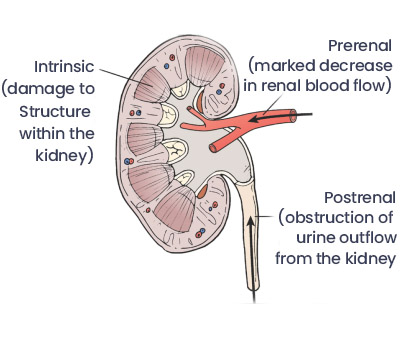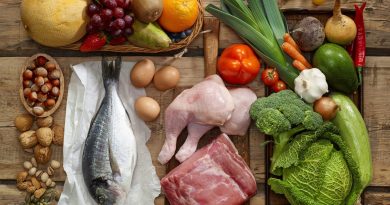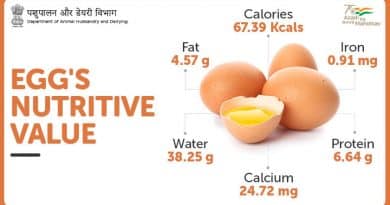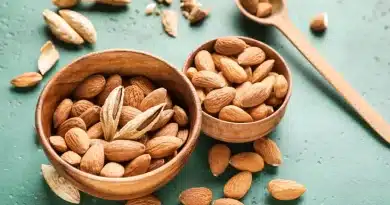The Need For Proper Nutrition Following Renal Failure
Many disorders can lead to renal failure, including infections, kidney stones, and Chronic Kidney Disease (CKD), which can lead to heart disease, the major cause of death for those with CKD. CKD affects as many as 26 million Americans, and many more are at risk of developing CKD. Some of the risk factors for developing CKD include hypertension, diabetes, gout, prolonged shock, family history, certain ethnic groups, and some drugs. The best way to treat CKD is with early detection to prevent renal failure.
There are several causes of renal failure, and any disease that affects the kidneys can be fatal. Treatment for renal failure can be as simple as medication, or as drastic as the patient requiring a kidney transplant.
Causes of renal failure include:
– Low blood volume (hypovolemia), which can result from extreme blood loss
– Dehydration
– Trauma
– Serious infection (sepsis)
– Muscle breakdown (rhabdomyolysis)
– Vein obstruction
– Using diuretics
When CKD leads to renal failure, the condition may be acute or chronic. Some symptoms include:
– Nausea
– Blood in urine
– Urinating frequently at night
– Increased urination
– Pale urine
– Difficulty urinating
– Vomiting or diarrhea which could cause dehydration
– Increased urea in the blood
– Foamy urine
Other conditions that can be caused by renal failure include bone damage, muscle cramps, phosphates in the blood, itching, and a potassium build-up, which can lead to hyperkalemia, which can in turn result in abnormal heart rhythms and even muscle paralysis.
Kidney Stones
Kidney stones are another condition in the kidneys that, although not as serious as some of the conditions above, is still extremely painful and can lead to more serious conditions. Kidney stones are a common condition that is most common in Caucasian men between the ages of 40 and 70, while women over 50 are at a higher risk of developing kidney stones. Some patients may pass the stones on their own, while others will need medical treatment.
Some of the causes of kidney stones include cystic kidney disease, certain metabolic disorders, such as cystinuria and hyperoxaluria, excess vitamin D, gout, hypercalciuria, and blockage in the urinary tract. Symptoms of kidney stones include pain in the back, nausea and vomiting, frequent urine that is pink in color, burning urination, fever, and chills.
Renal Failure and Dietary Needs
Patients experiencing any renal conditions have particular dietary needs. The patient’s physician is the best person to consult when making changes to any diet because they will be able to recommend the proper nutrients for the condition that the patient is suffering from. Protein intake should be limited for patients with CKD.
Too much protein in a patient’s diet can lead to ketosis or changes in the metabolism. Fat is broken down into ketones, which are then released into the bloodstream and can suppress the appetite and increase urination. These two symptoms together can lead to dehydration, electrolyte imbalances, and osteoporosis.
It is essential in the diet, but the protein that is taken should be low in fat. Vegetable proteins are often recommended as a terrific source of protein for CKD patients. Using a liquid protein supplement is also ideal, as it is only 100 calories per serving but provides 25 grams of protein.
As a rule, the American Heart Association recommends that about 35% of a person’s daily caloric intake comes from protein, but for CKD patients, this number is usually lower, especially for patients whose kidney disease is just beginning or worsening. This is why it is so important to make sure that all dietary changes are approved by a physician or dietitian.
Protein supplements are one way to get the necessary protein without adding too much fat and too many calories to diets. There are several protein supplements available, and they are made with various proteins. The best protein supplements for CKD patients would be rice and soy.
Rice Protein – Here is a great source of protein supplements for CKD patients, vegetarians, and people who are lactose intolerant. Because it is considered to be a hypoallergenic protein, it is terrific for people with allergies. Rice protein is gluten-free and is low in fat and carbohydrates, so it is great for dieters too.
It is usually an inexpensive type of protein supplement, and because it is essentially flavorless, it can be used for shakes, smoothies, and recipes without changing the taste. Rice is a complete protein, containing all 22 of the essential and non-essential amino acids.
Soy Protein – This is a very popular choice for protein supplements. Soy is a terrific choice for people with CKD, allergies, and lactose intolerance. Soy is another protein that is considered to be a complete protein and contains no saturated fats or cholesterol.
Soy is low on the glycemic index, so it will not cause dramatic rises in blood glucose levels. Soy is a popular protein for women and can lower the risk of breast cancer. Some people may find that soy causes them to have digestive troubles. If this happens to you, you may want to try a different type of protein supplement.
Protein Supplements and CKD Case Study
Michael was suffering from CKD and had gone into renal failure. After surgery and a series of medications, Michael was advised by his physician that he would also have to make some serious changes to his diet. One of these changes was to limit his protein intake, and he could do this by changing the dietary sources of protein.
Michael decided to try a liquid protein supplement. Because it is low in fat and calories, it provided him with the protein that he needed without the fat and calories that would not be good for his condition. After using Profect, from Protica, for just a few days, Michael noticed that he had more energy and that he was feeling better sooner than he had ever expected. Today, Michael is living a healthy lifestyle that includes Profect and other Protica products.




